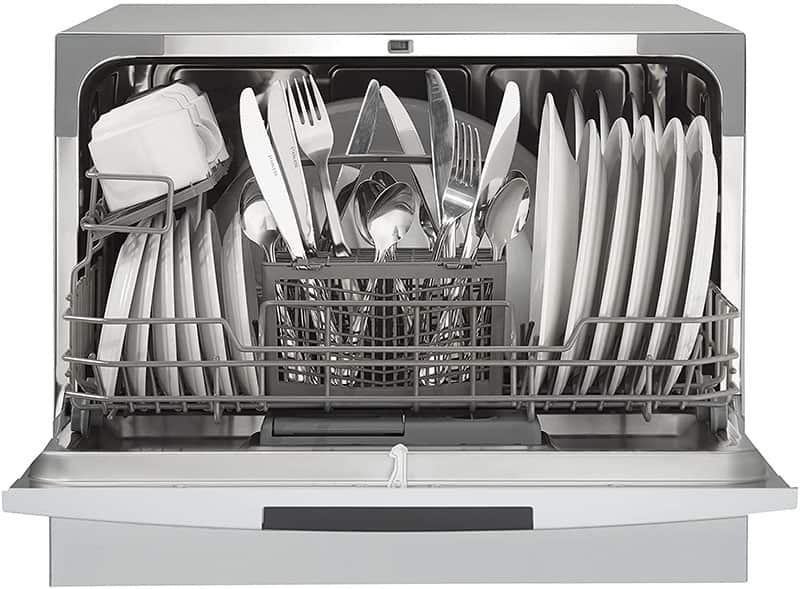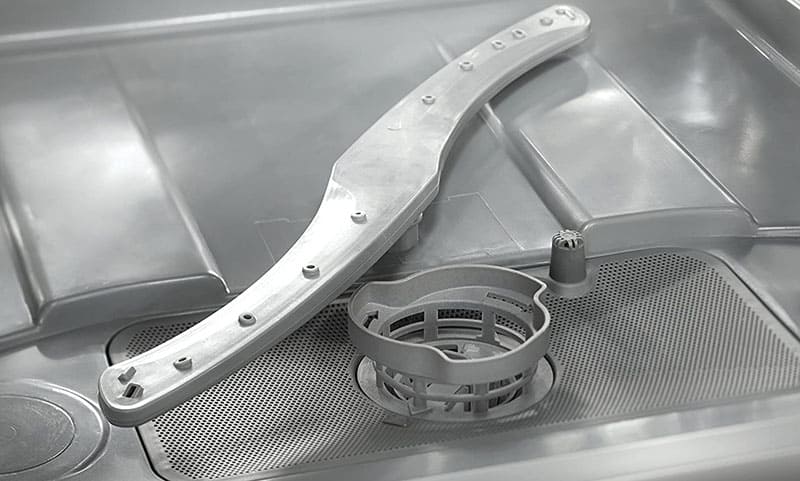
Allowing your dishwasher to run an entire cycle can take up to 2 hours, depending on the size of the load. Your dishwasher is already mid-cycle, and then you see two wine glasses from last night. Should you open the door and add them to a basket?
Should you be concerned about how this will affect your dishes, load, and your dishwasher itself? Here’s what happens when you open your dishwasher mid-cycle.
Most dishwashers these days have an open-door feature, so if you suddenly remember an item or two, just pull up on the door, and everything will be alright!
Most high-end dishwashers have child locks that prevent the door from being pulled open by a small, curious hand. But the majority of dishwashers feature a door that automatically opens when the handle is pulled on.
How do Dishwashers work?
The dishwasher is a brilliant piece of technology. Here’s how it operates: the dishes get washed by hot jets of water sprayed against them from all directions.
Like many other appliances, the dishwasher uses energy to heat water and feed it into the washer, where it is applied to all the dirty dishes outfitted with baskets that capture the food. No matter how dirty they are, they come up clean and dry after each use.
Most home dishwashers work like this:
Coldwater is run through the dishwasher continuously. The heating element heats the water, which comes from the tap near the sink, normally to 110°F to 120°F (43°C to 50°C). This temperature is ideal for washing dishes but not hot enough to kill bacteria or damage the dishes.
The design of a dishwasher makes it more hygienic than hand-washing.
The dishwasher pumps water from the wash water reservoir into the nozzles. The individual jets spray the water against all dirty dishes, greatly reducing friction and wear on the utensils. Then, the water will fall into the basin after all dishes are clean and continue along its path to drainage or a hose.
After the washing, the dishes and utensils need to dry. The “dry cycle” is important because it removes moisture from dishes and prevents sticking. You can skip it and save energy, but then you shouldn’t expect your dishes to dry clean every time.

Water Concerns
Dishwashers don’t use the amount of water some of us think they do. While washing machines use much water to get clothes cleaner, dishwashers need far less. Some might get the idea from watching how clothes get cleaner in a washing machine or because they cannot see what’s happening inside a dishwasher.
Dishwashers are surprisingly economical with water usage. Customers care about their utility bills, which means that they prefer dishwashers that are not crazy with how much water they use.
As such, you might be surprised to find a dishwasher with little water inside when you open the door while the cycle is still in progress. It depends also a bit on the machine’s current phase.
In eco mode, the water is even more sparse. The door design also typically prevents messes by diverting the water inside when you open it too early.
Detergent Concerns
You should not inhale the chemicals in the soap that are present in the dishwasher tablets and the rinse aid. But usually, small doses won’t pose a health risk, but let’s be honest – who wants to breathe those chemicals in?
To avoid this, we suggest opening the door during the pre-wash.
Modern Dishwashers are safer
In recent dishwashers, the pump is turned off and stopped during the door opening sequence. This happens automatically. It’s not necessary to pause the cycle on these machines.
After closing the door, press the “Reactivate” button (often the Start Button) to continue with the cycle. Once pressed, the cycle continues, and the clock continues to tick down.

Don’t wait too long
It doesn’t make sense to open the doors too late in the cycle. You might not have enough time to get the newly added items clean. So, it is better to hold off for the next cycle.
Leaving it too late is also a safety hazard. If you open the door during drying, a hot gust of air will blast into your face if you’re crouching down. Although you might not get scolded, don’t take unnecessary risks!